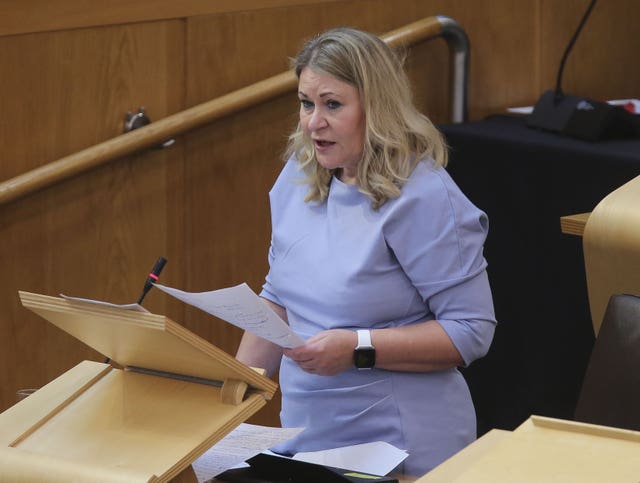
Two people who have gone through gender reassignment treatment and later regretted it – sometimes referred to as detransitioners – are due to speak to MSPs at a meeting in the Scottish Parliament.
The meeting will be co-hosted by SNP MSP Ruth Maguire and Scottish Labour’s Pauline McNeill.
Sinead Watson, a 31-year-old woman from Glasgow, and Ritchie Herron, a 35-year-old man from Newcastle, will share their views on the Gender Recognition Reform (Scotland) Bill.
The legislation is currently at Stage 2, with amendments being discussed in committees.

The stage one vote on the Bill led to nine SNP MSPs breaking with the whip to abstain or vote against the legislation, as well as the resignation of minister Ash Regan from the Scottish Government.
The Bill aims to make it easier for transgender people to be legally recognised as their preferred gender.
Opponents have raised concerns about the impact of the legislation on women and girls, while supporters say it will have little impact outside the trans community.
Ms Watson said: “The voices of detransitioners have not been heard either by the Scottish Government in developing its proposals, or by MSPs who are considering this draft legislation.

“I am particularly concerned about the plan to allow children aged 16 and 17 to get a Gender Recognition Certificate (GRC).
“When I presented myself to a gender identity clinic, I felt so certain that medical transition was the only solution for me, but now I wish that greater care had been taken to consider all my underlying issues.
“I believe that affirming children in their identity is dangerous and could lead them to make decisions about their bodies that they later regret, as I have.”
Mr Herron said: “There has been a lot of publicity about the huge increase in numbers of young girls identifying as transgender and it is good that NHS England has commissioned the Cass Review to look at this.
“However, I am keen to tell MSPs about the experiences of young men who identify as transgender and later regret it.
“I am particularly concerned about estimates that the number of trans-identified young men having gender reassignment surgery may soon outstrip the number of trans-identified young women having double mastectomies.
“I was diagnosed with transsexualism after two short appointments and underwent medical and surgical interventions, which have left me with life-long side effects.
“When I presented at a clinic, I was in a very vulnerable state and feel that this was overlooked.”


Comments & Moderation
Readers’ comments: You are personally liable for the content of any comments you upload to this website, so please act responsibly. We do not pre-moderate or monitor readers’ comments appearing on our websites, but we do post-moderate in response to complaints we receive or otherwise when a potential problem comes to our attention. You can make a complaint by using the ‘report this post’ link . We may then apply our discretion under the user terms to amend or delete comments.
Post moderation is undertaken full-time 9am-6pm on weekdays, and on a part-time basis outwith those hours.
Read the rules hereLast Updated:
Report this comment Cancel